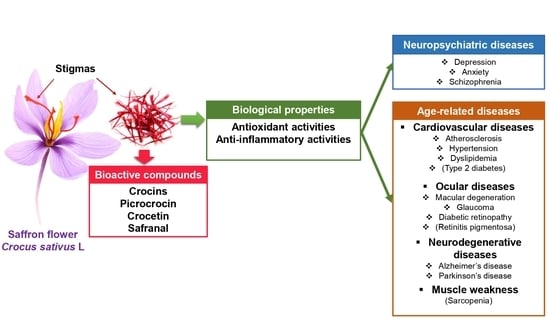medical and neurological benefits and use of saffron, gotu kola,
Here's a comprehensive overview of the medical and neurological benefits of saffron, Gotu Kola, phosphatidylserine, Bacopa, acetyl L-carnitine, and Mucuna pruriens, based on recent research and findings:
1. Saffron (Crocus sativus)
Medical and Neurological Benefits:
- Mood Enhancement: Saffron has been shown to reduce symptoms of depression and anxiety, possibly due to its effects on serotonin metabolism. Studies indicate that saffron may be as effective as standard antidepressants (Healthline).
- Cognitive Function: Research suggests that saffron can improve memory and cognitive function, especially in Alzheimer’s patients. It may help protect against neurodegenerative diseases by reducing oxidative stress and neuroinflammation (MDPI, Healthline).
- Neuroprotection: Saffron's antioxidants help manage oxidative stress, a significant contributor to brain disorders like Parkinson's disease. It may improve motor function in rodent models of Parkinson's (ScienceDirect).
- Potential in Neurodegenerative Disorders: The compound has demonstrated protective effects against conditions such as Alzheimer’s and Parkinson’s by promoting neurogenesis and alleviating cognitive decline (PubMed, MDPI).
Further Reading:
2. Gotu Kola (Centella Asiatica)
Medical and Neurological Benefits:
- Cognitive Enhancement: Gotu Kola is believed to improve memory, mental clarity, and overall cognitive function (Healthline).
- Anxiety Reduction: This herb has adaptogenic properties that can help to manage anxiety and stress (PubMed Central).
- Wound Healing and Skin Health: Known for its healing properties, it promotes collagen production and improves circulation, facilitating faster healing of wounds (WebMD).
- Neuroprotective Effects: It contains active compounds that may protect the brain from neurotoxic effects and reduce cognitive decline (NCBI).
Further Reading:
3. Phosphatidylserine
Medical and Neurological Benefits:
- Cognitive Function: Phosphatidylserine is essential for maintaining cell membrane integrity in the brain, crucial for cognitive functions like memory and learning (Healthline).
- Stress Reduction: This phospholipid has been shown to help manage stress and improve mood by influencing cortisol levels (NCBI).
- Memory and Attention Improvement: Supplementation may enhance memory, particularly in older adults experiencing cognitive decline (PubMed).
- Support for ADHD: There is evidence suggesting benefits in ADHD management, improving focus and attention (Thieme).
Further Reading:
4. Bacopa Monnieri
Medical and Neurological Benefits:
- Cognitive Enhancement: Bacopa is known for enhancing memory and improving cognitive performance, particularly verbal learning and delayed recall (Healthline).
- Anxiety and Stress Relief: It exhibits anxiolytic properties, making it effective in reducing anxiety levels (PubMed).
- Neuroprotective Properties: Bacopa supports neuron health and may protect against neurodegenerative conditions through its antioxidant properties (Journal of Herbal Medicine).
- Improvement in ADHD Symptoms: Preliminary studies suggest Bacopa may reduce symptoms associated with ADHD (Healthline).
Further Reading:
5. Acetyl L-Carnitine (ALCAR)
Medical and Neurological Benefits:
- Cognitive Improvement: Acetyl L-carnitine may enhance cognitive function and memory, particularly in elderly populations at risk for cognitive decline (Healthline).
- Mood Enhancement: It has been shown to have mood-lifting properties and may help reduce symptoms of depression (WebMD).
- Neuroprotection: ALCAR aids in the regeneration of nerve cells and has protective effects against neurotoxic damage (Journal of the American Geriatrics Society).
- Fatigue Management: It is reported to reduce fatigue and increase energy levels, beneficial for chronic conditions (Mayo Clinic).
Further Reading:
6. Mucuna Pruriens
Medical and Neurological Benefits:
- Parkinson’s Disease Management: Mucuna pruriens contains L-DOPA, a precursor to dopamine, which can help manage symptoms of Parkinson’s disease (PubMed).
- Mood and Anxiety: It may enhance mood and reduce anxiety, likely due to its dopaminergic effects (Nutritional Neuroscience).
- Cognitive Function: Some studies suggest that Mucuna can enhance cognitive function and concentration (Annals of Neurosciences).
- Neuroprotection: Mucuna pruriens may protect neurons from degenerative diseases due to its antioxidant properties (Physiological Research).
Further Reading:
In summary, each of these natural compounds has significant medical and neurological benefits, often overlapping in their effects on cognitive function, mood, neuroprotection, and stress management. They can be beneficial individually or in combination for improving brain health and overall well-being. For anyone considering supplementation, it’s advisable to consult with a healthcare professional to ensure safety and appropriateness based on individual health needs.
Sources


Related Questions
Work fast from anywhere
Stay up to date and move work forward with BrutusAI on macOS/iOS/web & android. Download the app today.
